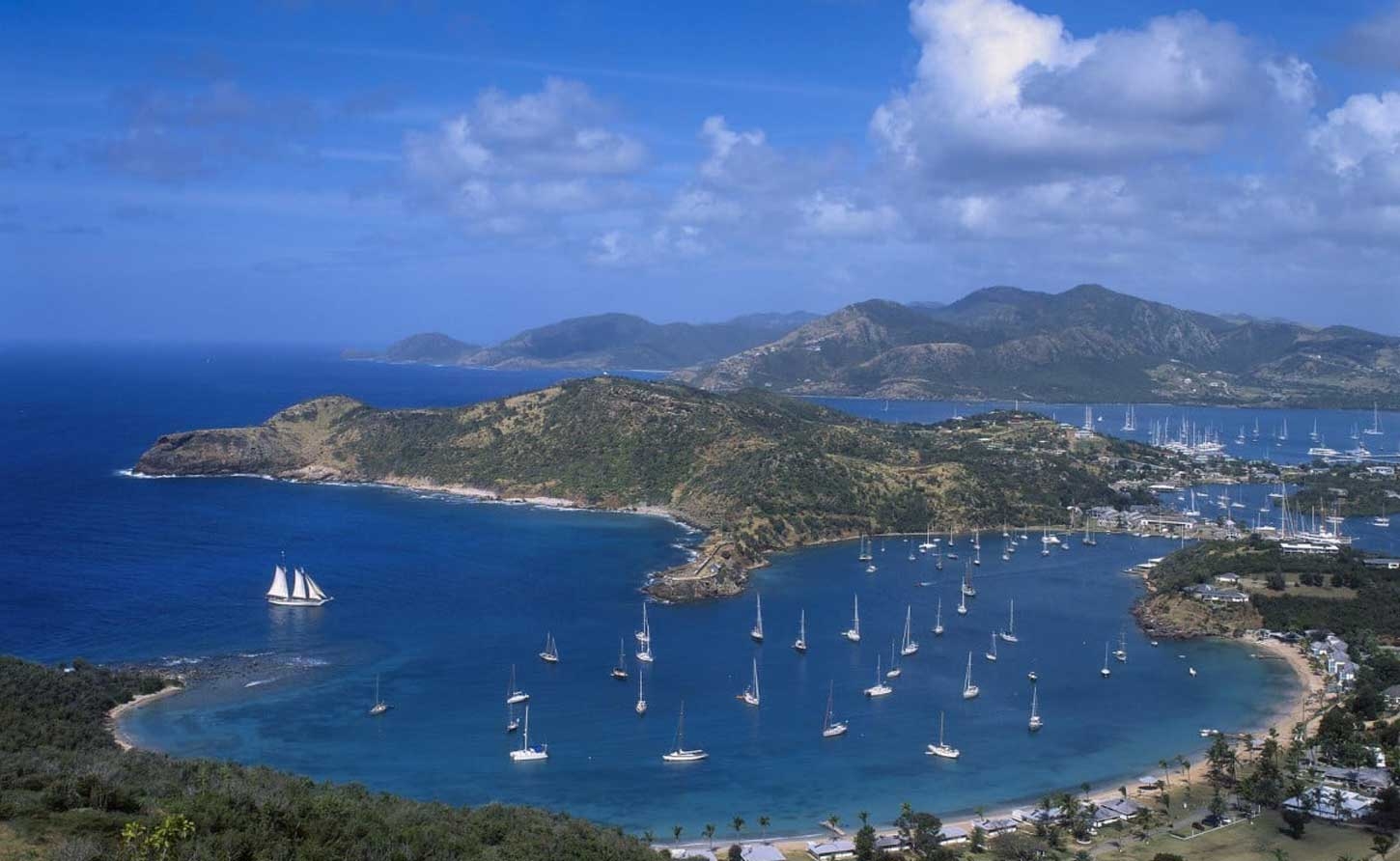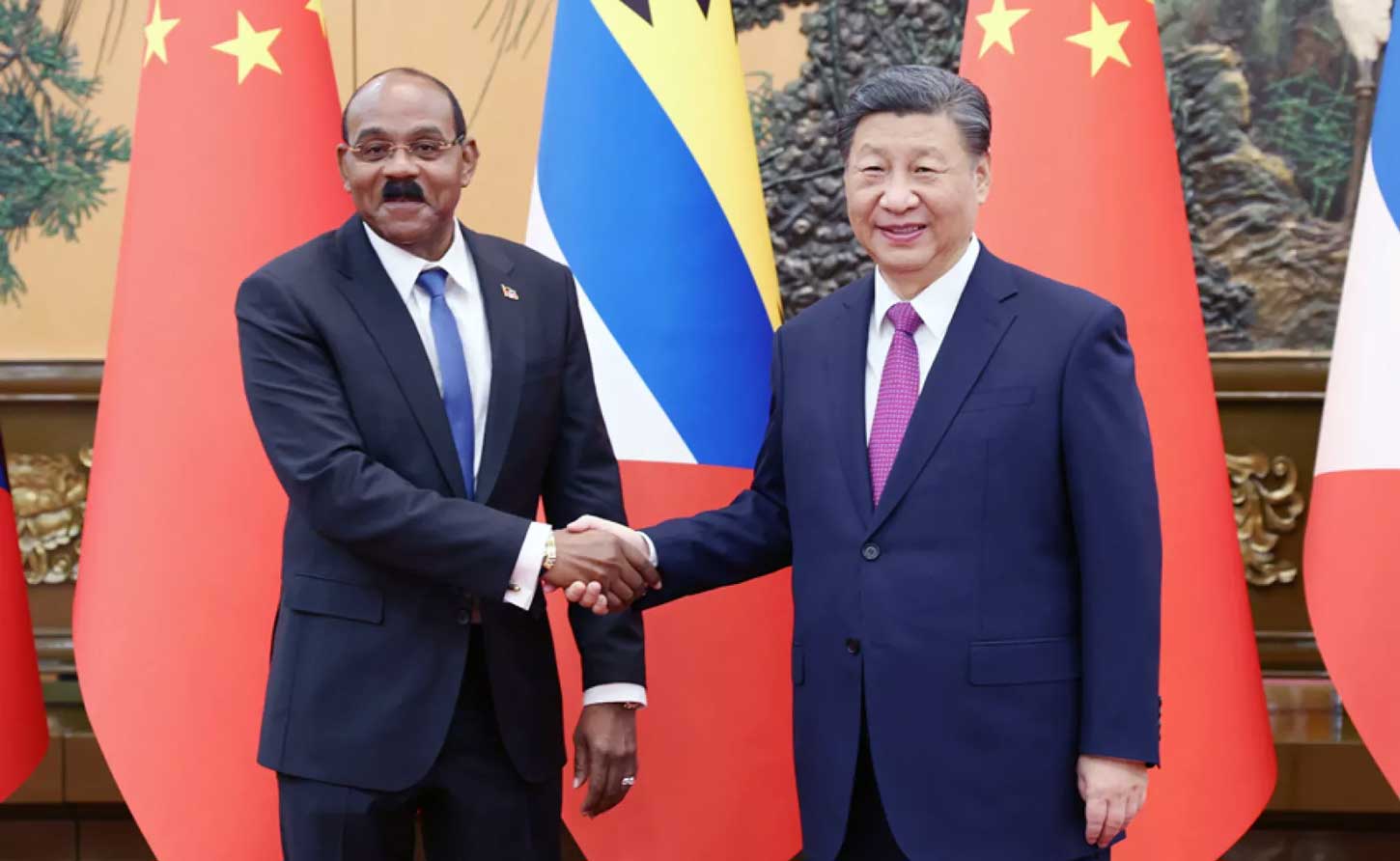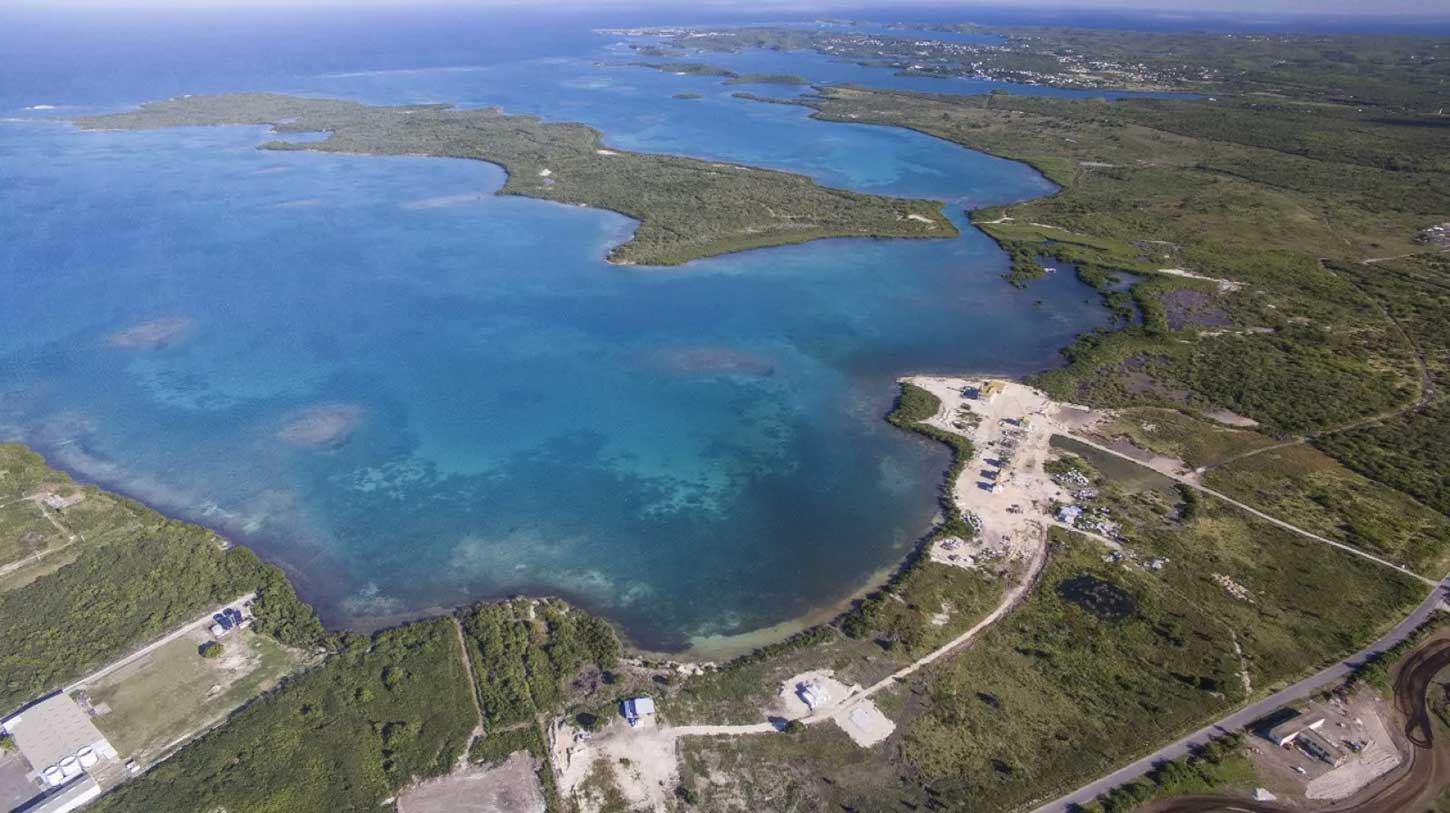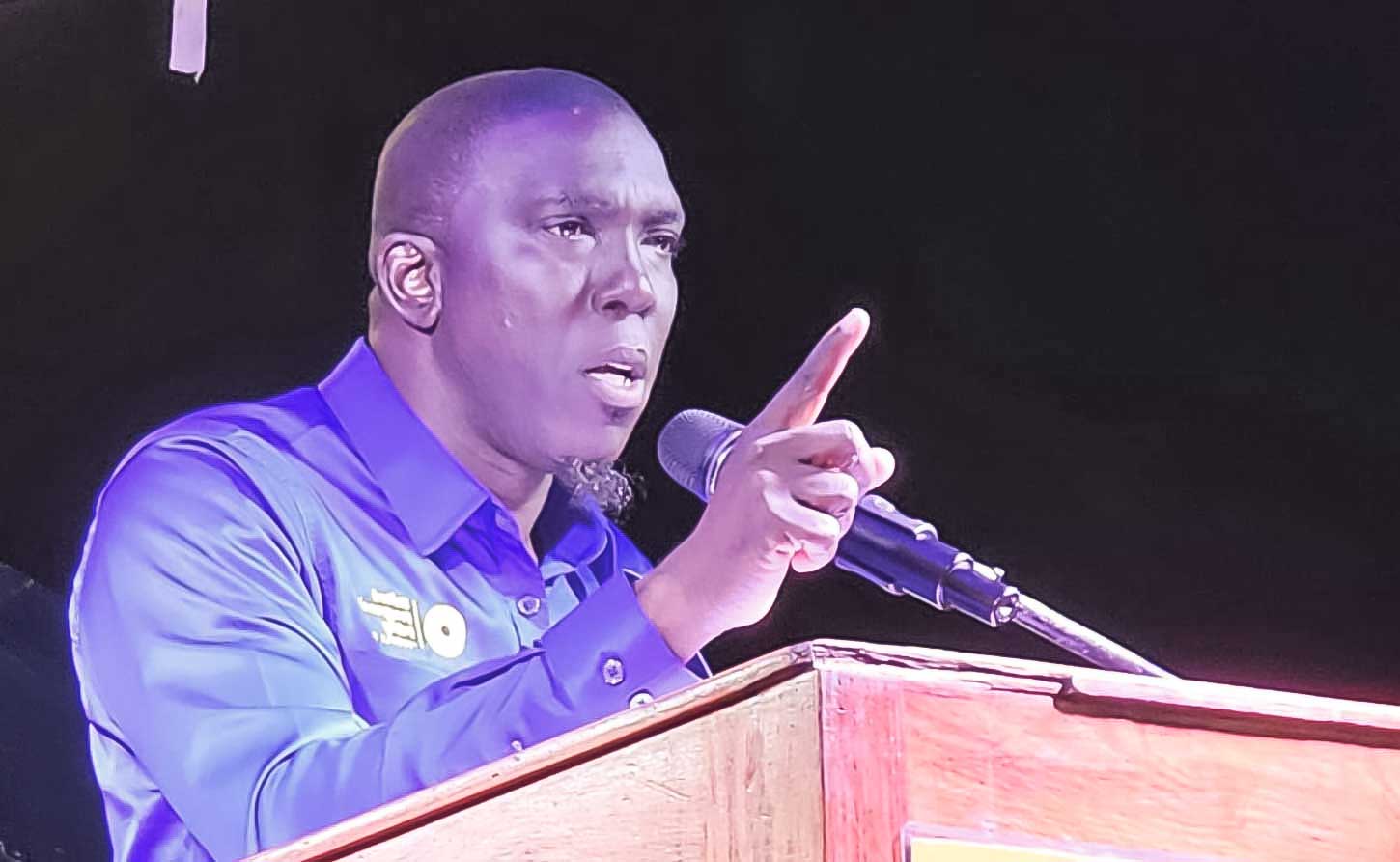ANTIGUA | Chinese Control: Controversial Economic Zone Raises Antigua Sovereignty Concerns

ST. JOHN'S, Antigua, November 17, 2024 - In a move that threatens to redraw the economic and political landscape of this Caribbean nation, Antigua and Barbuda's Prime Minister Gaston Browne finds himself at the center of a firestorm over what critics call a modern-day colonial venture: a vast Chinese-controlled special economic zone that effectively creates a state within a state.
The project, known locally as the Yida Zhang development after its principal investor, encompasses a sprawling 1,600-acre territory that has become a lightning rod for controversy. At its heart lies a troubling question: Has Antigua, in throwing off the chains of British colonialism and American dominance, unwittingly submitted to a new master?

The zone's unprecedented autonomy is enshrined in its 2024 government-issued license. Under the aegis of the Special Economic Zone (Antigua & Barbuda) Holdings Ltd (SEZH), an independent Zone Management Committee will wield powers typically reserved for sovereign states—including control over customs, immigration, and police services. Perhaps most controversially, a fishing company "ocean monitoring team" will assist the Antiguan coast guard in "regulating" territorial waters, a provision that has sovereignty experts deeply concerned.
The financial arrangements have raised eyebrows across the region. The zone enjoys complete exemption from national taxes, including income tax, sales tax, and import and export duties. Developers can establish seafood harvesting operations within the zone and claim 90% of the profits. Perhaps most troubling to critics, anyone investing more than $400,000 becomes eligible for Antiguan citizenship—a provision that essentially puts nationality up for sale.

Opposition leader Jamale Pringle of the United Progressive Party (UPP) has been particularly vocal about the potential consequences. "The agreement with YIDA, which ceded control of our seabed and other marine resources to a foreign private company, is especially galling given the recent discovery of oil and natural-gas reserves in Grenada and Guyana," he notes. His concerns reflect a growing fear that Antigua may have signed away its future prosperity for a mess of pottage.
The criticism extends beyond official opposition channels. Alister Thomas, a UPP candidate who challenged PM Browne in the last elections, sees the zone as part of a broader pattern of questionable dealings.
"As I examine the over 30-plus investment projects that PM Gaston Browne announced, some he had groundbreaking—or more correctly, ground faking—I am now satisfied that it's all part of his publicly declared self/family/friends 'self enrichment schemes,'" Thomas asserts. He points to what Browne himself termed "creative enrichment," a policy that Thomas claims involves giving away national assets, lands, properties, and concessions under the guise of development.

The project's ambitions extend far beyond mere real estate development. Plans include the construction of the island's second commercial port—following the Chinese state-owned Civil Engineering and Construction Company's expansion of St. John's port—and remarkably, its own airline. ABSEZ International Airlines Ltd., incorporated on January 31, has carte blanche not only for passenger and cargo operations but for "any other business" that enhances its profits. Adding to these sweeping provisions, an "Antigua and Barbuda International CRYPTO Services Zone" promises to establish comprehensive cryptocurrency operations, from mining to trading.
The environmental cost of this economic gambit has conservationists alarmed. The development encroaches upon Antigua's largest marine reserve, a protected sanctuary since 2005 that serves as a crucial habitat for endangered species. The land, purchased for $68 million from the liquidators of disgraced Texas financier Allen Stanford—now serving a 110-year prison sentence for running a global Ponzi scheme—includes pristine coastal areas and several untouched islands.
"We have spent 25 years working there, rehabilitating habitats for various wildlife," laments Arica Hill, executive director of Antigua's Environmental Awareness Group. "Now we're seeing 25 years of work go downhill. It's literally devastating. If it can happen in a marine protected area, where else can it happen?"
Prime Minister Browne, who brokered the deal shortly after taking office in 2014, remains bullish on the project's prospects. His vision of transforming this nation of 100,000 into an "economic powerhouse" hinges on the zone's success. He maintains that only sustainable construction methods are being employed, with developers working alongside "the best scientists in the world." His government has pledged to preserve seventy acres of mangroves in a special reserve and establish a nursery for 100,000 trees—promises that critics dismiss as window dressing.
The zone's operational structure effectively creates a parallel governance system within Antigua's borders. Commercial activities within the zone bypass traditional government oversight, requiring only committee approval. The statutory instrument creating the zone grants it extraordinary powers, including its own customs gateway and a "specialized Customs Management Department" operating independently of national authorities. More striking still, the zone faces "no restrictions to planning density ratio and construction," a provision that effectively nullifies national building codes.
The compensation for this sweeping surrender of sovereignty appears remarkably thin. Employment opportunities for locals are negligible, as the zone caters almost exclusively to foreign interests and maintains unlimited authority to import foreign workers. The Antigua and Barbuda Parliament has yet to be fully briefed on potential economic benefits for facilities outside the zone, as the country's civil service will have no jurisdiction within its boundaries.
For many Antiguans, the cultural and environmental costs far outweigh any promised economic benefits. "It's easy to tout the economic benefits but they're not weighing up the environmental harm and the economic fallout," Hill observes. "Many people – including myself, who grew up near there swimming, fishing and boating – have strong cultural and heritage ties to the area; it's part of who we are."
As Chinese-funded buildings rise from the razed landscape of Antigua's north-east coast, the nation stands at a crossroads. The fundamental question remains: In its quest for economic development, has Antigua exchanged one form of colonialism for another? As construction continues and the zone's influence grows, many fear this ambitious venture may transform the island in ways its citizens will come to regret—not as an economic paradise, but as a paradise lost to foreign control.
The impact of this development extends far beyond Antigua's shores, serving as a cautionary tale for small nations navigating the treacherous waters of global power politics. As China continues its economic expansion throughout the Caribbean, the Yida project may well become a template for future developments—or a warning of what can happen when the promise of prosperity overwhelms concerns about sovereignty and self-determination.
EDITOR'S NOTE:
Editor's Note: Despite thorough attempts, we have been unable to obtain official source documents related to this story. While it seems improbable that the Chinese government would enter into an agreement with Antigua and Barbuda without formal documentation, we cannot independently verify the details at this time. During our recent visit to Antigua, government officials declined to discuss the project, and opposition United Progressive Party (UPP) members were unable to provide a verifiable copy of the relevant Act.
Given the significant public interest implications, we have determined that publication is warranted while we continue to pursue the official documentation. According to an Opposition Member of Parliament, the agreement was expedited through parliament without members having access to the source document, and the Prime Minister subsequently sought to amend it. These circumstances further underscore the story's importance to public discourse and transparency in governance.
-30-
